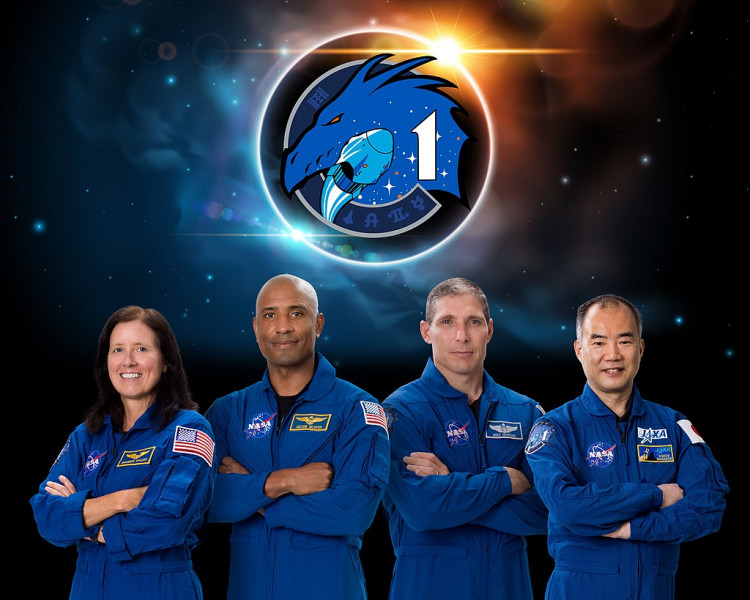Astronauts Michael Hopkins, Shannon Walker, Victor Glover, and Soichi Noguchi have arrived at the Kennedy Space Center in Florida for their historic launch to the International Space Station (ISS).
The first operational, long-term flight to the ISS onboard a Crew Dragon spacecraft and the Commercial Crew Service of NASA will be SpaceX's Crew-1. Weather permitting, liftoff from Launch Complex 39A, is officially scheduled for Saturday, Nov. 14, at 19:49 EST.
The astronauts departed from Ellington Field near Houston's Johnson Space Center and flew on a charter plane to Kennedy. They were received upon arrival by NASA Administrator Jim Bridenstine, Deputy Administrator Jim Morhard, Center Director Bob Cabana, and Junichi Sakai, Director of the JAXA International Space Station Program.
Hopkins will command the Crew-1 flight, which will be deployed on a SpaceX Crew Dragon spacecraft and a Falcon 9 missile at the station. For the mission, the Crew-1 astronauts called their spacecraft Durability.
"On behalf of the crew of Resilience, on behalf of our families, we want to say a big 'thank you' to all of the people at SpaceX, at NASA, and in the (Department of Defense) who have been working tirelessly to get us to this point. It's really been an incredible effort by an incredible group of people," Hopkins said in a statement.
The four will be greeted by the current astronauts, including astronaut Kate Rubins, who recently voted in space, upon docking with the ISS, raising the complement of the space station to seven for the first time in its history. The crew will perform science studies on such subjects as botany and cancer over the next few months. Their return in the spring is expected.
For years, NASA has partnered with SpaceX to transport cargo to and from the station. Two NASA astronauts flew on a SpaceX spacecraft to the ISS this summer and then successfully splashed down off the Pensacola coast. It was the first splashdown scheduled since 1975. NASA approved the SpaceX crew system as "operational" for potential astronaut flights after that successful evaluation.
Originally scheduled for Oct. 31, the mission was postponed for 15 days to allow SpaceX to work out the problems with its Falcon 9 powered Merlin engine. During the first launch attempt for the GPS III SV04 mission in early October, the engine suffered an issue with its gas generators, initiating an auto-shutdown sequence at T-2 seconds.





